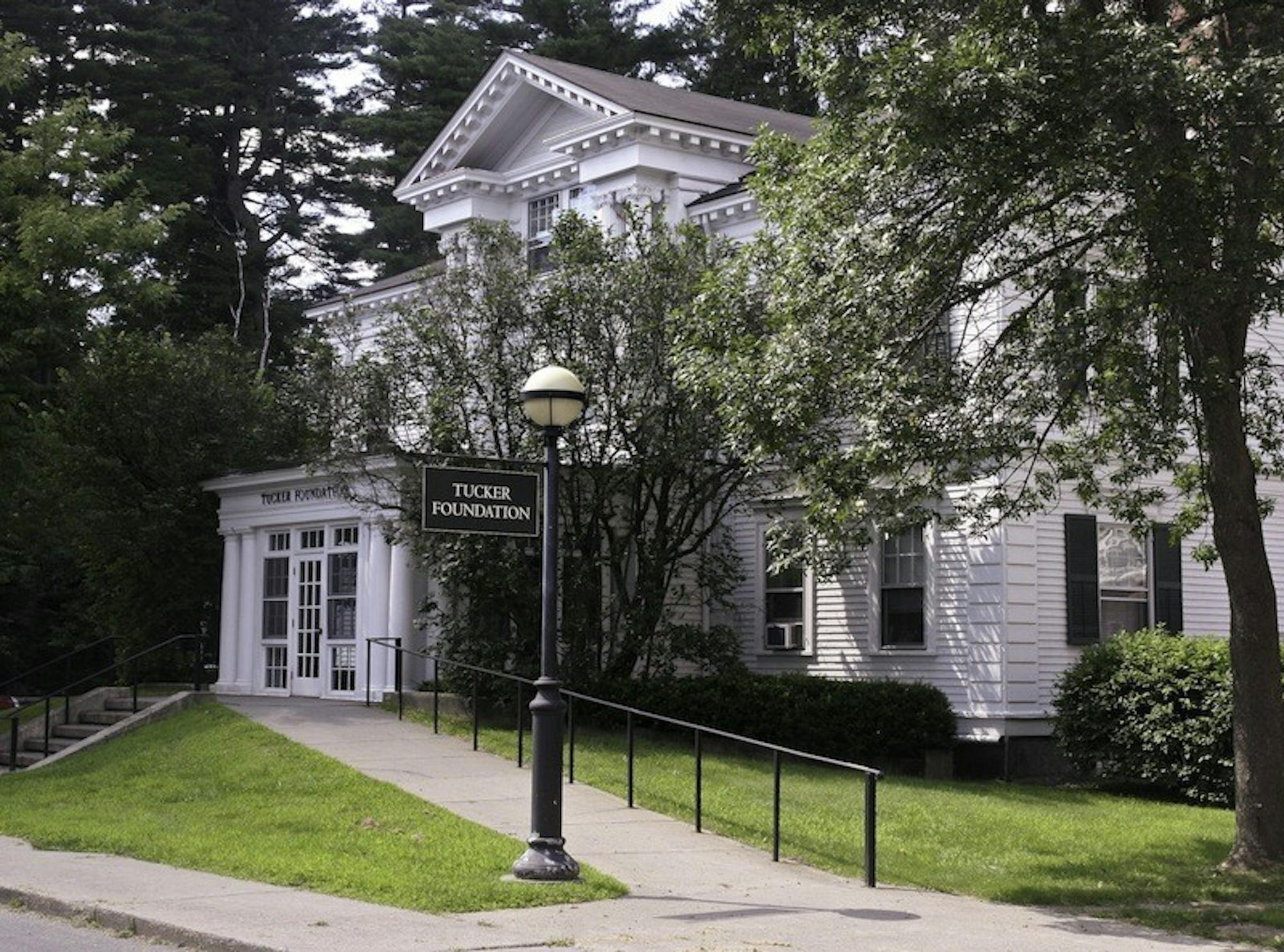Religious and spiritual life and public service at the College will soon be housed under separate institutional roofs when the Tucker Foundation splits into the Tucker Center for Religious and Spiritual Life and the Dartmouth Center for Public Service.
A task force that interim provost Martin Wybourne convened last fall reviewed Tucker’s structure and concluded that its mission would be better served by two centers, Tucker interim dean Theresa Ellis ’97 said. The College’s Board of Trustees voted on and approved the idea at its June meeting.
Ellis declined to comment on the distinction between the two new center’s responsibilities, adding that efforts will begin this summer to more precisely define the goals and vision of the centers.
The task force held five meetings with various constituencies, including Tucker staff, members of the Tucker Board of Visitors, Dartmouth students and community participants. At these meetings, attendees discussed more effective ways to operate Tucker’s programs.
But the task force’s findings are not new, Ellis said, noting several other committees’ studies and external reviews.
Ellis said she agreed with the task force’s assessment. She said while religious and spiritual life and public service overlap in some places, managing them under a single umbrella is difficult.
These tensions came to a head with the controversy over the appointment and subsequent dismissal of Right Rev. James Tengatenga due to his previous comments on homosexuality. His appointment to be Tucker Foundation dean was revoked last August.
Tengatenga was chair of the Malawi Council of Churches in 2012 when it advocated that the Malawi government uphold the criminalization of homosexuality, claiming it contradicted Christian values. More than 30 Dartmouth students and faculty members signed a petition protesting his appointment.
But Ellis said she does not believe that the controversy regarding Tengatenga connects with the decision to divorce religious and spiritual life from public service at Tucker.
Instead, Wybourne formed the task force wanting to ensure that Tucker could best serve the needs of Dartmouth students and other stakeholders, she said.
Tucker program officer for local community service Tracy Dustin-Eichler, who is about to complete her 11th year at the foundation, said she thinks that the decision will allow for the two new centers to branch out and develop individually while also retaining the possibility of future collaboration.
Dustin-Eichler said Tucker staff members spoke with the task force and with Ellis. Dustin-Eichler described the task force’s efforts as a “wide-reaching process,” collecting data and opinions from a broad spectrum of stakeholders.
Ellis, who began her tenure at Tucker last October, will remain the interim dean to guide the organization’s restructuring this coming academic year, according to Wybourne’s statement in the press release.
Wybourne also noted in the press release that a search for leaders of both centers will begin in the coming months. Two working groups consisting of faculty, students, alumni, staff and community members will frame the centers’ mission, Ellis said in the press release.
After speaking with a wide range of students, alumni and staff at both Tucker and in the broader College community, Ellis said she believes that people generally support the decision.
Marylynne Sitko ’16, who served as Tucker intern for religious and spiritual life in the past winter and spring terms, said she does not understand how a future spiritual office at the College could not prioritize community service.
“I think that the best way for university students to really engage in this kind of thinking about finding themselves in a religious or spiritual way is through community service,” she said.
As a religious person, she said she finds it impossible to separate her spiritual center from her community service work.
“To me, they’re synthesized,” she said, noting that she thinks that the institutional structure should reflect this synthesis.
She added that those partaking in community service are often driven to do so for religious reasons, but she said she believes that students will be able to navigate between spiritual life and community service even if they are in different institutional spheres.
Former Tucker communications intern Katie Trinh ’16 said she hopes that the transition will encourage students who are nervous about community service or spiritualism to participate.
Trinh said that separating spiritualism or service from current Tucker programming could prove difficult.
She said that local service groups traditionally reflect after their service, which she sees as related to spirituality, and that she hopes this sort of reflection will continue after the transition.
Wybourne was not available for comment by press time.
Charlie Rafkin and Zac Hardwick contributed reporting.




